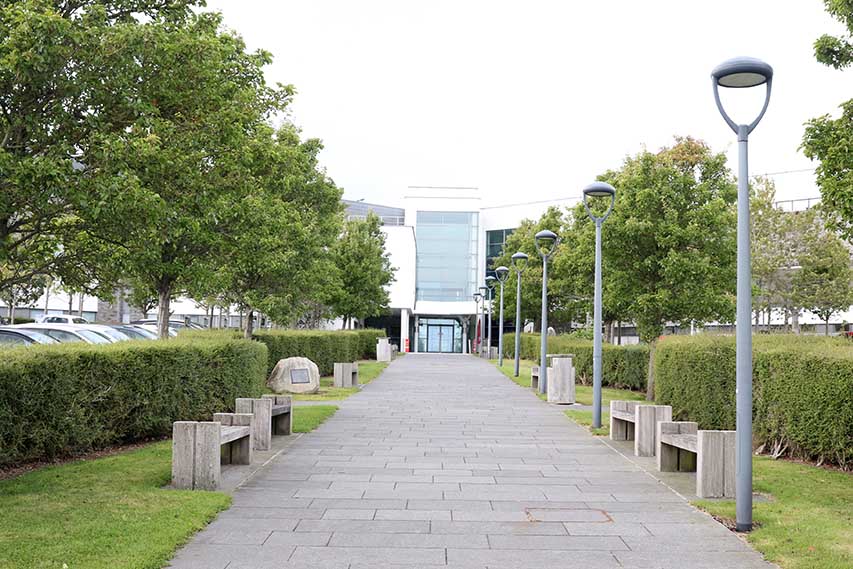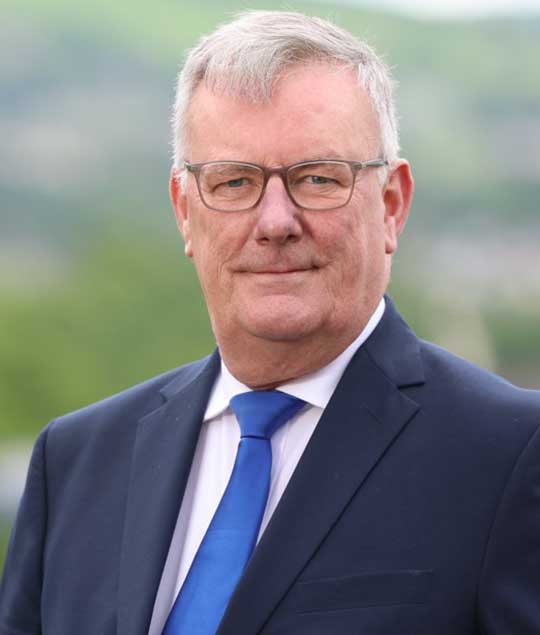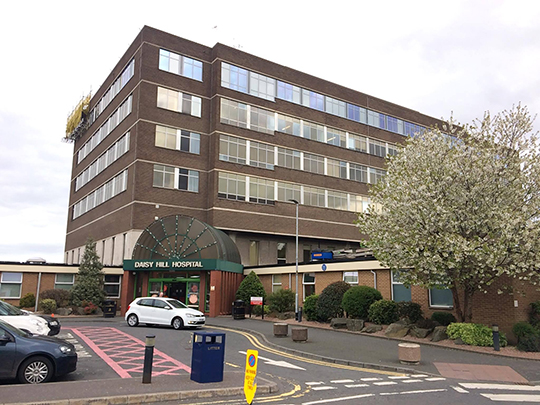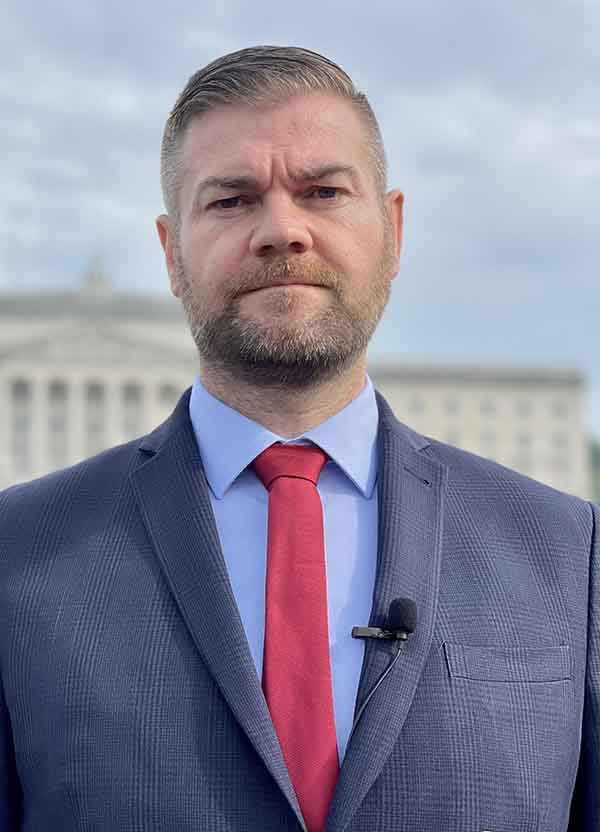Our hospitals are better working together says Nesbitt
Hospitals have a brighter and more secure future as part of a Northern Ireland network of care, Health Minister Mike Nesbitt has emphasised.
The Minister today (1 10 24) launched a reconfiguration framework for hospitals, setting out the key principles to underpin service reorganisation.
Entitled ‘Hospitals – Creating a Network for Better Outcomes‘, the document will be the subject of a public consultation.
Minister Nesbitt said: “Too often, our hospitals are viewed as stand-alone units. Some have faced prolonged challenges with recruiting staff and maintaining services, leading to understandable concerns in communities.

“We need to see each of our hospitals as part of something bigger and wider – fitting into a network in which each plays a key part. This is essential if we are to deliver better outcomes for patients and staff.
“Reconfiguration of some services is required. The roles of some hospitals will have to change – to keep pace with modern medicine and deliver better patient outcomes.
“While every hospital cannot provide every service, each hospital will still play a vital role, not just in their local communities but as a valued part of a planned regional system.

“This document can help assure communities that reconfiguration of services is not about cutting costs or closing hospitals. It’s about managing change in a controlled way and demonstrating the benefits. It’s about showing how each hospital can fit into the network and best serve patients.
“Change is happening. We see that with the increasing shift towards centres of excellence such as standalone elective care hubs.
“This is reform in action but there is much more to do. A collaborative approach can better sustain our network to the benefit of patients and staff.
“I encourage everyone to take part in the public consultation and make their voice heard.”
The framework categorises NI hospitals into four main types:
- Local Hospitals, which is a diverse group delivering primary, secondary and community services in support of the area and general hospitals.
- General Hospitals, delivering defined secondary care services including unscheduled care, geared to a specific, more isolated geographical location. These hospitals also play an important part in the delivery of elective care to the region.
- Area Hospitals, delivering a full range of secondary care services, both unscheduled (un-planned) and elective (planned) treatment, to the communities within a geographical area currently defined by the distribution of integrated services delivered by our five geographic Health and Social Care Trusts (HSCTs).
- Regional Centres, delivering specialist regional inpatient services for the whole population of Northern Ireland.
Some hospitals by nature of their locality or range of services may be included in more than one category, as listed in the document.
Local Hospitals: Ards Hospital, Bangor Hospital, Dalriada Hospital, Downe Hospital Downpatrick, Lagan Valley Hospital, Lurgan Hospital, Mid-Ulster Hospital, Moyle Hospital, Omagh Hospital and Primary Care Complex, Robinson Hospital, South Tyrone Hospital, Waterside Hospital, Whiteabbey Hospital.

General Hospitals: Causeway Hospital, Daisy Hill Hospital, Southwest Acute Hospital.
Area Hospitals: Altnagelvin Hospital, Antrim Area Hospital, Craigavon Area Hospital, Belfast Hospitals Campus (includes Royal Victoria Hospital, Mater Hospital, Royal Jubilee Maternity Hospital and Royal Belfast Hospital for Sick Children) and Ulster Hospital.
Regional Centres: Altnagelvin North West Cancer Centre, Belfast City Hospital including the Cancer Centre, Musgrave Park Hospital, Royal Belfast Hospital for Sick Children, Royal Jubilee Maternity hospital, Royal Victoria Hospital, Ulster Hospital Regional Centre for Plastic Surgery and Maxillofacial Surgery.
A key aim is to identify the core services in each of these types of hospitals and address the key challenges to sustainably deliver these.
Modern medicine – not least increasing levels of clinical specialisation and sub specialisation – means change cannot be avoided. The challenge is to deliver change on a planned basis rather than through service collapse.
In key specialties, when hospitals have lower patient numbers, this can create significant issues for professionals working in key specialties.
These include rota/on-call pressures inherent in smaller clinical teams, as well as insufficient case mix to support specialisation, training and skill development.
These issues inevitably have consequences for recruitment and retention, adding to the challenges of maintaining services.
The Framework also sets out 5 enablers and 13 actions to support reconfiguration and the delivery of a connected Hospital Network.
‘Hospitals – Creating a Network for Better Outcomes‘ can be read at:
https://www.health-ni.gov.uk/publications/hospitals-creating-network-better-outcomes
The public consultation goes live on October 2, 2024.
McGrath says clarity needed on health service transformation
SDLP Opposition Health Spokesperson Colin McGrath has said that clarity is needed around plans to transform the health service.
He was speaking after a statement from Health Minister Mike Nesbitt on a reconfiguration framework for hospitals.

Mr McGrath said that while progress on transformation is welcome, more detail was needed.
South Down MLA Mr McGrath said: “Today’s statement from the Health Minister is welcomed – transformation of our health service is long overdue and the failure to act has left patients waiting years for treatment and services on the point of collapse.
“Our staff have also suffered from the constant demand to give more while getting less and staffing issues have also put significant pressure on the sector.
“However, we cannot escape the fact that there is very little detail in the Minister’s statement today about what transformation will look like or what form it will take.
“Movement is all well and good, but we need to know where this is heading and how it will improve outcomes for patients in communities across the North.
“Without concrete proposals or timescales there is genuine concern that transformation could once again be allowed to drift.


























